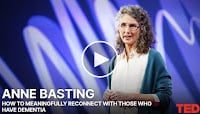A recent survey by hearing aid manufacturer GN/ReSound found that 75% of people with hearing loss have changed how and where they “socialize” to accommodate for their changes in hearing, suggesting there could be long-term implications for their sense of connectedness with family, friends, and colleagues.
One-third of survey respondents who have noticed a change to their hearing consider how loud a venue might be when planning to meet others and 41% choose to spend more time socializing at home to avoid noisy environments (vs 23% without hearing loss). Additionally, the survey found that a third of people with hearing loss would prefer to communicate by text or email, rather than have a phone call.
According to Dr. Jenn Schumacher, an audiologist with GN/ReSound, research shows that these behaviors can manifest and contribute to a person experiencing social isolation and loneliness in the long term. Not only is social isolation linked to depression and other health problems, but it’s also associated with dementia. Interestingly, only 1 in 5 respondents knew of the link between untreated hearing loss and dementia.
She says social isolation as a result of hearing loss may only be felt strongly after a long period of time. It is therefore important to capture hearing loss as early as possible to prevent feelings of loneliness and isolation further down the line.
Today’s hearing aids can provide a huge benefit in reducing the negative social impact of hearing loss, and helping individuals connect better with loved ones and their environment.
Schumacher points to recent advancements that her company has made that can help. ReSound Nexia greatly improves the ability to hear people talk in noisy places such as restaurants (the No. 1 issue for those with hearing loss) and is the first hearing aid to support Bluetooth Low Energy (LE) Audio including Auracast broadcast audio.
She says Auracast is a game changer, giving people the ability to connect directly to broadcasts, presentations, and announcements in public places such as theatres, airports, churches, and arenas.
Below, Schumacher explains how hearing aid technology helps to improve how people with hearing loss socialize and combat feelings of loneliness and isolation:
1. Improved Communication
Hearing aids amplify sound and enhance the ability to hear and understand speech, helping users participate better in conversations.
Being able to hear speech more clearly, especially in a noisy environment such as a restaurant or birthday party, allows you to connect directly with friends, family, or colleagues.
2. Emotional Well-being
Hearing loss can increase feelings of loneliness, frustration, anxiety, and isolation. However, hearing aids can help create a positive impact on the emotional well-being of individuals with hearing loss.
Hearing aids improve overall communication abilities, which helps to reduce feelings of anxiety and frustration that may arise from struggling to understand, follow or participate in conversations, promoting increased self-esteem.
Improved communication leads to more meaningful connections and increased social engagement, which are important factors in maintaining emotional well-being and preventing feelings of isolation that may arise from hearing loss.
3. Access to Information
Innovations in hearing aid technology enable users to have increased access to important information, such as announcements, notifications, and public broadcasts, by streaming them directly to their hearing aids.
Hearing aid technology that supports Bluetooth LE Audio with Auracast broadcast audio enhances the ability to connect and participate, particularly in public places, by enabling hearing aid wearers to wirelessly connect or directly stream audio from a variety of devices such as a TV in a local bar, or announcements at an airport/train station, as well as to smart devices such as a phone or tablet to stream music and phone calls.
4. Enhanced Relationships
Being able to communicate more clearly helps to foster better relationships with friends, family, colleagues and acquaintances.
Improved interactions can lead to more meaningful relationships and connections, which helps to create a better sense of belonging and reduce feelings of loneliness and isolation.
5. Increased Confidence
Wearing hearing aids and being more immersed in your surroundings can boost self-confidence, as individuals can actively engage in conversations more naturally and feel less alienated.
Having increased confidence as a result of wearing hearing aids will encourage the user to participate more in social interactions rather than isolating themselves due to anxiety or frustration.
—
This post was previously published on resound.com.
***
You Might Also Like These From The Good Men Project
 Compliments Men Want to Hear More Often
Compliments Men Want to Hear More Often  Relationships Aren’t Easy, But They’re Worth It
Relationships Aren’t Easy, But They’re Worth It  The One Thing Men Want More Than Sex
The One Thing Men Want More Than Sex  ..A Man’s Kiss Tells You Everything
..A Man’s Kiss Tells You Everything Join The Good Men Project as a Premium Member today.
All Premium Members get to view The Good Men Project with NO ADS.
A $50 annual membership gives you an all access pass. You can be a part of every call, group, class and community.
A $25 annual membership gives you access to one class, one Social Interest group and our online communities.
A $12 annual membership gives you access to our Friday calls with the publisher, our online community.
Register New Account
Log in if you wish to renew an existing subscription.
Username
First Name
Last Name
Password
Password Again
Choose your subscription level
- Yearly - $50.00 - 1 Year
- Monthly - $6.99 - 1 Month
Credit / Debit Card PayPal Choose Your Payment Method
Auto Renew
Subscribe to The Good Men Project Daily Newsletter By completing this registration form, you are also agreeing to our Terms of Service which can be found here.Need more info? A complete list of benefits is here.
—
Photo credit: iStock
The post How Hearing Aid Technology Is Transforming Social Lives appeared first on The Good Men Project.
Original Article










